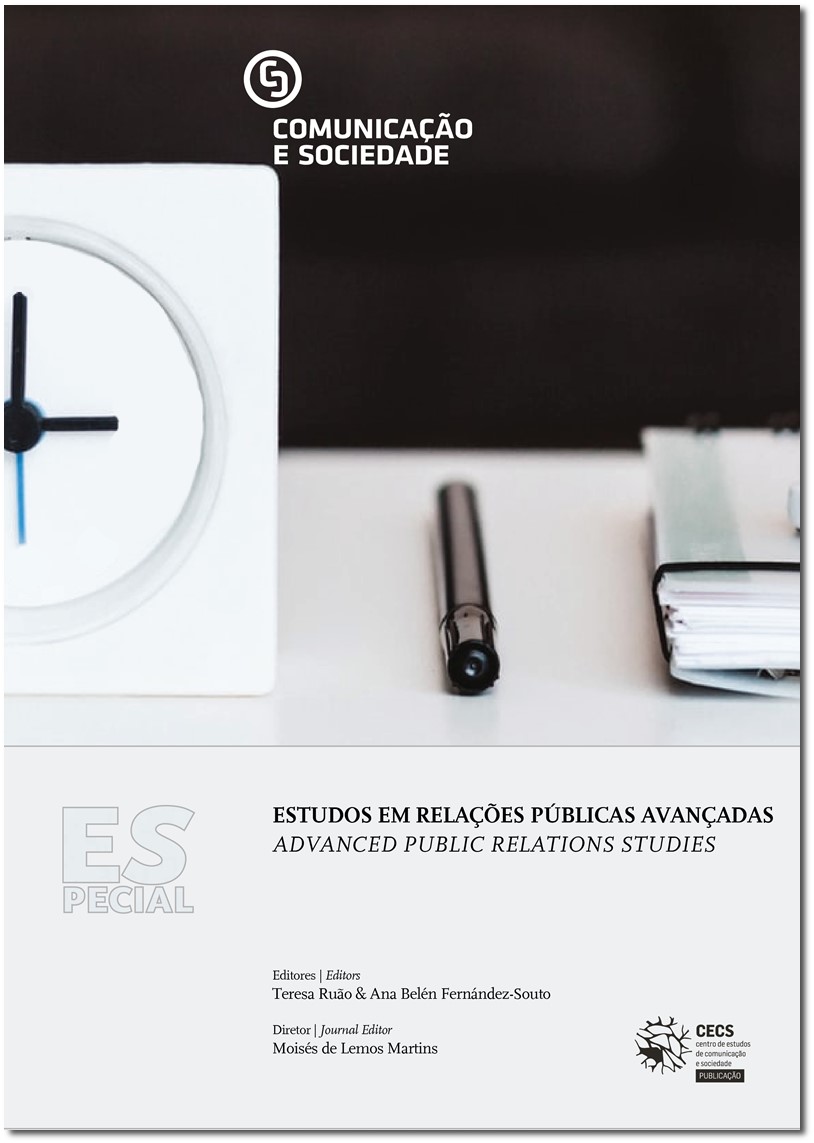Spanish lobbies listed in the European transparency register
DOI:
https://doi.org/10.17231/comsoc.0(2020).2743Keywords:
political communication, public relations, lobbies, pressure groupsAbstract
Lobbyists are political agents of great importance, since they operate with the objective of influencing the decision making of different institutions. In order to improve knowledge about these pressure groups, the present research analyses the composition and functioning of the 745 Spanish lobbies that are, until the date of the study, registered in the Transparency Register of the European Union. Through a content analysis, we tried to show the relevance and influence that these groups have on the European Parliament’s political decision-makers. The results showed that the category formed by the pressure groups of the companies of the commercial, business or professional associations is the most numerous, assuming 50,6% of the studied sample. Regarding the individuals who run these groups, it was noted that they are mostly men, in a proportion that corresponds to twice the number of women who perform this function. On the other hand, it is observed that only 8,18% of Spanish lobbies have their headquarters in Belgium, compared to 91,81% who are not domiciled in the place where the main administrative headquarters of the European Union is located. This indicates that the lobbying activity of Spanish groups is still low.
Downloads
References
Almansa-Martínez, A. (2003). Estrategia de comunicación institucional en sistemas democráticos. In J. I. Aguaded Gómez (Ed.), Luces en el laberinto audiovisual = luzes no labirinto audiovisual: Congreso Iberoamericano de Comunicación y Educación (pp. 1-15). Huelva: Grupo de Investigación Agora, Grupo Comunicar.
Almiron, N. & Xifra, J. (2016). Influence and advocacy: revisiting hot topics under pressure. American Behavioral Scientist, 60(3), 253-255. https://doi.org/10.1177/0002764215615161
Arévalo Martínez, R. I. & Herlinda Ortiz, H. (2018). Análisis de modelos de relaciones públicas en Facebook de las organizaciones del tercer sector de México, Chile, Inglaterra y España. Revista Internacional de Relaciones Públicas, 8(15), 85-106.
Barron, A. (2011). The impact of national business cultures on large firm lobbying in the European Union: evidence from a large-scale survey of government affairs managers. Journal of European Integration, 33(4), 487-505. https://doi.org/10.1080/07036337.2011.579752
Bentley, A. F. (1908). The process of government. A study of social pressures. Chicago: Chicago University Press.
Bernhagen, P., Dür, A. & Marshall, D. (2015). Information or context: what accounts for positional proximity between the European Commission and lobbyists? Journal of European Public Policy, 22(4), 570-587. https://doi.org/10.1080/13501763.2015.1008556
Berry, J. (1989). The interest group society. Illionis: Scolt Foreman/Little.
Cabral, R., Andrelo, R. & Granato, M. (2018). A privatização da ética no Brasil: posicionamento da Petrobrás no canal do Youtube. Revista Internacional de Relaciones Públicas, 16(3), 207-228. https://doi.org/10.5783/RIRP-16-2018-12-207-228
Canelón, A. R. (2005). Comunicación organizacional: del lobby a la ciudadanía corporativa. Estudios venezolanos de Comunicación, 131, 82-91.
Castillo-Esparcia, A. (2018). Los lobbies en España. Análisis de su tratamiento mediático. In M. C. Carretón (Ed.), Oportunidades en la estrategia de relaciones públicas (pp. 185-219). Valencia: Tirant Lo Blanch.
Castillo-Esparcia, A. (2011). Lobby y comunicación: el lobbying como estrategia comunicativa. Zamora: Comunicación Social.
Castillo-Esparcia, A. & Smolak, E. (2017). Lobbies y think tanks. Comunicación política en la red. Barcelona: Editorial Gedisa.
Castillo-Esparcia, A., Smolak-Lozano, A. & Fernández Souto, A. B. (2017). Lobby and communication in Spain. Analysis of the presence of lobbies in Spanish prestigious press. Revista Latina de Comunicación Social, 72, 783-802. https://doi.org/10.4185/RLCS-2017-1192en
Castillo-Esparcia, A., Guerra-Heredia, S. & Almansa-Martínez, A. (2017). Comunicación política y think tanks en España: estrategias con los medios de comunicación. El profesional de la información, 26(4), 706-713. https://doi.org/10.3145/epi.2017.jul.14
Chalmers, A. W. (2013). Trading information for access: informational lobbying strategies and interest group access to the European Union. Journal of European Public Policy, 20(1), 39-58. https://doi.org/10.1080/13501763.2012.693411
Harris, P. (2002). The evolution of strategic political lobbying in the UK and the Psychological Network Underpinning Machiavellian Marketing. Journal of Political Marketing, 1(1), 239-251. https://doi.org/10.1300/J199v01n01_17
Harris, P. & Mcgrath, C. (2012). Political marketing and lobbying: a neglected perspective and research agenda. Journal of Political Marketing, 11(2), 75-94. https://doi.org/10.1080/15377857.2012.642745
Klüver, H. (2012). Informational lobbying in the European Union: the effect of organisational characteristics. West European Politics, 35(3), 491-510. https://doi.org/10.1080/01402382.2012.665737
Milbraith, L. (1963). The Washington lobbyist. Chicago: Rand McNally.
Moya Díaz, E. (2018). Transparencia y lobby. El desafío en escenarios de coexistencia entre lo formal e informal. Transparencia & Sociedad, 6, 83-102.
Rebollo-Bueno, S. (2019). Los think tanks y su presencia en la agenda mediática española. Revista Internacional de Relaciones Públicas, 9(17), 165-188. https://doi.org/10.5783/RIRP-17-2019-09-165-188
Schendelen, R. V. (2010). More Machiavelli in Brussels: the art of lobbying the EU. Amsterdão: Amsterdam University Press.
Svolik, M.W. (2012). The politics of authoritarian rule. Cambridge, USA: Cambridge University Press.
Truman, D. B. (1968). The govermental process political interest and public opinion. Nova Iorque: Alfred A. Knopf.
Xifra, J. (1998). El lobbying: cómo influir eficazmente en las decisiones de las instituciones públicas. Barcelona: Gestión 2000.
Xifra, J. (2016). El lobbying europeo: escenario y bases para su desarrollo. Revista Organicom, 8(14), 167-180.
Downloads
Published
How to Cite
Issue
Section
License

This work is licensed under a Creative Commons Attribution-NonCommercial 4.0 International License.
Authors own the copyright, providing the journal with the right of first publication. The work is licensed under a Creative Commons Attribution 4.0 International License.











